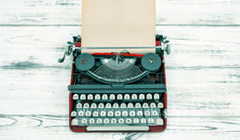- Brooke Warner
- What Are E-Books Worth?

For the past few months, our distributor (Ingram) has been encouraging She Writes Press to price our e-books above $9.99. Because we are distributed by Ingram, we will not be penalized by Amazon for pricing above this price point, and publishers experimenting with higher e-book prices are reporting that sales aren’t dropping when they’re publishing e-books at $12.99, or $14.99, or even at $16.99 for a $16.99 paperback. Interesting.
At She Writes Press we’re going to start experimenting with higher price points for e-books this spring. Pricing your e-book at exactly what your print book is priced at is called “parity pricing,” and it’s something that gets bandied about a lot by bigger publishers. I’ve stated before that Amazon is, in effect, price fixing by “incentivizing” its KDP authors to price their e-books between $2.99 and $9.99. They do this by giving authors 70% earnings if they stay within these parameters versus 30% if they price below $2.99 or above $9.99. This is a pretty effective way to keep the vast majority of e-books right within that sweet spot. This is the kind of pricing control they want to have with the big houses too, and we all know what happened when Amazon tried to exert this control over Hachette this year.
The very public “war” (now resolved) between Hachette and Amazon was, in part, about this question of who gets to control pricing—the retailer or the publisher. It was also about discounts, and Hachette’s push for better terms. Hachette—and many publishers—do not want to price their books at $9.99 or less, and a look at a couple of Hachette’s front list titles, like Joshua Ferris’s To Rise Again at a Decent Hour and Robin Roberts’s Everybody’s Got Something, show the Kindle edition priced (as of the day of this post) at $12.99 and $11.04 respectively. Interestingly, Roberts’s book is only out on hardcover, so your savings on the Kindle edition are a whopping 59%, whereas on Ferris’s paperback book you save only 19%. Here you can see how Amazon’s system of discounting is very appealing to consumers. Some readers might take a look at that 59% off number for Roberts’s book and be compelled to buy—after all, it’s hard to resist a good deal.
But what are the larger consequences for deep discounts on e-books, or Amazon’s incentivized pricing system? Many argue that there is no downside. I see this argument being made most ardently by those who, as I’ve written elsewhere, have drunk the Amazon Kool-Aid. These are mostly genre authors who are making a killing on Amazon. They champion Amazon because it’s opened doors where big publishing has shut them out. These authors are Amazon’s loyal crusaders because Amazon has legitimized their work and given them control, and because it pays them handsomely. All good for those authors. But what works for genre fiction does not work for other genres. I have not seen this model successfully replicated for the sweet spot She Writes Press authors are in: literary fiction, commercial women’s fiction, and prescriptive nonfiction.
It’s taken me a while to come around to the idea that raising e-book prices might be a good thing for our authors, and for authors in general. Like a lot of people, I look around and see that the vast majority of e-books are priced at $9.99 or lower. I’ve heard people say that authors would be shooting themselves in the foot to price higher. I’ve priced my own e-books below $9.99, and when my first book came out in 2012, I underpriced the paperback because I wanted it to be “affordable.” I also tried out a free giveaway through Kindle Select (before we signed with Ingram). Was it satisfying to know that hundreds of people downloaded my book for free? Honestly, not really. Making zero dollars on an experiment I threw money at and spent a bit of time to figure out didn’t feel good at all. And there was a lot of hype, and promise that I would see an uptick in my sales after my free weekend was over, but if there was an uptick in sales, it was negligible. Plus, as a consumer who’s downloaded books for free during promotions, I can speak to my own attitude toward those books. Yeah, I downloaded them for free. And they’re still sitting in the Kindle cloud, unread. Maybe I’ll get to them someday, but it’s clear that our culture of free books does nothing but make us value books less.
Like a lot of people, I’m hot and cold on Amazon. It’s amazing that they’ve given authors a platform to publish and sell their work on. They deserve to be recognized, even applauded, for making publishing accessible, and something anyone can do. Without Amazon, there would be no She Writes Press. There would be no hybrid publishing. The part of me that values voices of all sorts being heard loves Amazon for the democratization of publishing—something I believe in with all my heart. The dark underbelly of this free-for-all, however, is that there’s no discernment. Masterpieces are the same price as works that authors have churned out in one month with zero regard for editorial control.
This all ties into my point about e-book pricing, which is this: Consumers will pay for the books they want to read. I’m just one person, and I’m not going to single-handedly make Amazon change their terms (God, how I wish I could), but I do believe we all need to be careful about our own contribution to a cultural belief system that e-books are, by the very nature of being digital, not worth very much. When I read, I’m transported to another realm by an author’s voice, description, storytelling, and craft. This is what I’m paying for—not for the paper the book is printed on or the publishing costs. And since most books don’t even earn out their advances (or in the case of self-published books their expenses), the focus shouldn’t be on what it costs to produce an e-book but rather on the monetary value we as a culture place on the experience of a good read. For my own part, I think it's invaluable.
Writing Status Badges












Writing Status Badges












Featured Members (7)
Writing Status Badges















































Thank you, Brooke. I agree and I'm against 'free' books 'e' or paper. Lots of bloggers are giving away their works free and I really think the mindset effects us all and not in a good way. I know how hard I worked on my book and the time it took to get it perfect and without a single typo. Never mind the blood and sweat I put into it. So then why would I just 'give it away' as though it had no value? Pricing specifically on ebooks, it can be argued that they are way less costly than a paper back. Therein lies the pricing decision. I really don't think they should be the exact same price as their paperback version. Great topic and post!
Thanks for this perspective, Jenni. It's interesting because this is what I'd hope for—that readers would be more discerning—and that by pricing your book a little higher you're saying, yes, I'm worth it. Cool that you download the samples and read. Thanks for weighing in.
And Kelly—YES!!! This is my point. Thanks for distilling. :)
The biggest issue I have in this conversation is the idea that an ebook "doesn't really cost anything to produce." That just simply isn't true. There are editing costs, design costs, layout costs, marketing costs, etc. Just like in a world of a physical product, the price only partially represents the actual hard costs of the item. Businesses have to account for a number of other factors and costs in order to simply break even much less make a profit. Just because something is digital doesn't reduce the labor involved in getting that item to market. Also, I think a lot of people have a misunderstanding of the cost of paper!
Definitely food for thought. I buy about two e-books a week from Amazon, usually the $9.99 ones, although I have recently noticed that price is creeping up, and admit to a groan or two. Downloading the free sample first becomes more important, and I have to really want to read on, or have read a great review from someone I respect, before buying. (I also buy cheaper books if I read good reviews of them). E-books are an even greater drawcard for those of us who live a long way away (eg: NZ),because for us, the price of postage doubles (or more) the price of a print book, and we don't get any of those "free postage" deals. So a small price increase for a great e-book is going to make me think a little harder (given the enormous number I buy every year) before I push the "buy on one click" button, but for addicted readers who can't wait 3 months to get a copy from a library, a good book is still going to get me buying as the price creeps up. Which seems very fair.
<<Regardless, this is more about perception and how our culture values e-books, which was the point of this piece. I think it's pretty clear that the vast majority of readers has been trained to set expectations for ebook pricing at the $10 or less price point. That's Amazon's doing, but the point is that the comments on this post alone are good data for me.>>
Brooke, I finally understand your point: Amazon has single-handedly created an ebook market and determined (with almost no marketplace competition) the price of ebooks. And, because they have a monopoly, they can continue to create society's perception of the value of ebooks.
(Of course, there's a bit of supply/demand in effect, too. If a new Harry Potter installment were released via only ebook, then the market would sustain a higher price than, say, for a first-time, unknown author's debut novel.)
But I think Susan's point is really important: "Ebook prices are a direct result of authors trying to achieve discoverability, not distribution."
What I'm concluding from this conversation is that Amazon is kinder to independent authors who are willing to publish their books via Amazon's CreateSpace and ebook platform than it is to traditional publishers who are looking to partner for distribution. In other words, Amazon seems to be going for the whole publishing enchilada, and is squeezing traditional publishers as much as possible. Is that what you're saying?
Susan, yes, I agree with you, but I think that Amazon is abusing its power. If Amazon were consistent in the percentages it takes then all would be well. If they just gave the 70/30 split across the board to Kindle Direct customers as well as to its publisher clients then that would be fine, and they'd still be doing well. But instead they're negotiating all kinds of other discounts and mandating all kinds of other fees. So for that reason I will never embrace them as a company, though their contribution to the book landscape is undeniably good.
Dera—thanks for this. A few people have weighed in to say this and it's making me rethink parity pricing. Very helpful. But the deal is this. On print books the additional costs associated are printing and storage. The consumer pays for shipping. For most print-run books, the cost of printing is about $2/book, and storage of course varies. I guess you'd have to figure out what your rent is, right? But we only pay .10 cents per unit per month, so it's pretty negligible. Correct me if I'm missing anything, but I think that's it—about $2 more. So that would solidify the argument that if a print book costs $16.95 then an ebook could/should be priced at $14.95 UNLESS it's e-only, in which case it doesn't have the same design costs associated. Regardless, this is more about perception and how our culture values e-books, which was the point of this piece. I think it's pretty clear that the vast majority of readers has been trained to set expectations for ebook pricing at the $10 or less price point. That's Amazon's doing, but the point is that the comments on this post alone are good data for me. Thank you!
I will not purchase an ebook for the same price for the print version. I just go ahead and purchase the printed edition. Otherwise I choose to pass. I think $9.99 from a major publisher is too much. As an author I would not my rexpect my readers to pay exorbitant prices for an ebook. I don't get it; there is little to none costs to produce an ebook. Maybe I'm missing something, not understanding the concept or business side but I think ebooks are over priced.
Amazon is a lot bigger than self publishing and it gives authors a forum to move our work because the more
traditional outlets will not give indie publishers the time of day. How else do people expect to transition from Indie to Mainstream if there wasn't a medium such as Amazon allowing people to create a following and generate
a buzz for their work through ebook pricing and promotions? Anything else is short-sighted and rigid. Ebook prices are a direct result of authors trying to achieve "discoverability," not distribution. Instead of resisting the changing nature of what is happening out there, we need to embrace the changing times and add Amazon to our stable.
Yes, but even authors don't typically know what commission the ebook accounts are taking, which is crazy. But yes, definitely. And good luck!
Brooke, thanks for taking the time to clarify...Sounds like asking a potential publisher what their negotiated agreements are with retailers -- esp for ebooks, where there's a wide commission range -- is important. I haven't published (yet!), so this is really helpful information.
Kelly, every single publisher has a different deal with these retailers. It varies. But in our case the deal with B&N for Nook sales is similar, and same with print. Across the board, whether you're traditionally published or self-published you must give bookstores a 55% discount, so publishers and authors split the 45% on print profit.
You do understand Amazon's pricing correctly for Kindle Direct Publishing. But we do not work with them through Kindle Direct Publishing so we don't have these terms. The terms just vary from publisher to publisher. We all know that Hachette and Amazon, for instance, recently came to a deal. It's "agency," so that means that Amazon takes 30% and Hachette 70%, but we also know that it's not that cut and dry. Most likely Amazon is requiring them to price their books within a certain window, and most likely they're taking other percentages for things like co-op and merchandising.
The gist of it is this. Retailers take anywhere from 30%-55% for ebooks and 50-55% for print books, leaving the publisher to split the rest with the author. In traditional publishing authors are getting usually under a dollar per book. I hope this clarifies. I know it's complicated. Too complicated!
I don't mean to sound dense, Brooke, but I'm just not getting the math. And I'm not trying to challenge you on your position about Amazon, just trying to understand it better.
So Amazon takes 50% of ebook profits and the remaining 50% is split between SheWrites Press and the author (20/80)? How does that compare to say what Barnes&Noble charges as a retailer? How does that compare with Amazon's selling a paperback? I'd imagine that ebooks would be more profitable for them, therefore they'd take a larger %age for an actual book.
If I understand Amazon's ebook pricing correctly, if an author prices under $10, she gets 70%. But if she prices at, say $13, she gets 30% -- which is half the profit. I'm not advocating for Amazon, but it seems to make sense to me to price lower (where more people could afford it) to reap twice the profit than if the book were priced at $13.
As a publisher, do you have a different arrangement with them? I understand you can't disclose the specifics, but I would assume a publisher's profits would be higher than what Amazon gives to an author. (Perhaps you can describe this relationship better by using a "hypothetical" publisher?) But it seems from your 50% comment that a publisher (and thus, the author, too) receives less profit?
Thanks for your comment, Laura. Glad to see that you will be testing the $12.99 price point. This is probably going to be our next step too. But we'll see. The authors have to want to try it, and it's not right for every book for sure. In fact, Liz O'Connor wrote about this in another SWP post today: http:/
Yes, Kelly. She Writes Press gives authors 80% of our net profits. So whatever is left over after what the retailers take from us is what we split—80% to the author and 20% to us. In our case because we have a wholesale model with Amazon, Amazon is taking in the ballpark of 50% of our e-sales. I say ballpark to maintain my non-disclosure agreement here. But we are also paying them co-op money and merchandising money (money they charge all publishers for better visibility). They just take and take and take with the promise of better featuring and all kinds of "incentives" that are really just about getting out in front or having better rankings, but I honestly don't see our authors benefitting from that as much as I think they should be. You can always pay them more of course for better visibility and better promotions. But to what end? They've really got a stranglehold on publishers.
<<We pay them co-op money and a merchandising fee. What's left for the publisher and the author to split is actually really sad, and our breakdown is on a 20% to us and 80% to the author. In traditional publishing it's 25% to the author.>>
Brooke, could you explain this? I'm confused!
In our case the entity that enjoys our money, David, is Amazon. It's honestly unreasonable what they take from publishers for ebooks. They have a corner on the market, and, it could be argued, they're a monopoly. God help Kobo to come in and make a dent here. All publishers are under non-disclosure agreements to discuss their terms with Amazon, but Amazon is taking somewhere in the ballpark of 50% for wholesale models (which is what we currently have) and 30% for agency models (BUT you have to stay within their pricing parameters). AND for both of these models there's all sorts of other additional costs just for the privilege of doing business with Amazon (so that they won't go and do something crazy, like take away your buy buttons, for instance). We pay them co-op money and a merchandising fee. What's left for the publisher and the author to split is actually really sad, and our breakdown is on a 20% to us and 80% to the author. In traditional publishing it's 25% to the author. So authors are literally getting cents on their ebook sales. I think it's criminal. I'm clearly all worked up about it, but there are only two solutions—to work with Amazon directly (which means for publishers cutting out your distributor, or for authors, cutting out your publisher), OR to price ebooks higher so that the earnings on a per book basis are something that actually breaks a dollar or two. And when I consider that I pay however much I pay to go see a movie—$12-$13 (which I cannot loan or resell)—I just feel that we could be settling at a better price point for a book.
I accept that it is important to separate the question of cost from cultural value and demand for a good book. However, the separation of these two perspectives is unlikely to be a neat cut. There are several issues which extend into both sides of the dichotomy. If the price for an ebook remains high, who enjoys the additional profit? Is it the publisher, the author or some other intermediary? Authors are unlikely to to receive the premium, with the exception of those with established and substantial drawing power. What is more likely is that the premium profit will go to the publishers, who will then spread some of the additional cash to PR and advertising in support of the promotion of top selling books. This simply reinforces an existing trend where a small, select group of well known authors and celebrities are the winners. Nasir Taleb has called this the phenomenon of winner takes all. The second issue that follows from here is that increased profits lead to greater power being concentrated with publishers at a time when the internet and social media should allow for broader distribution of art and ideas. I am not arguing here in favor of mob selection. But I do feel we need to broaden the sources of cultural trends in art and ideas. Increasing profit margins for a few major publishing houses and a select group of leading authors won't achieve that goal.
I've read several blog posts by indie authors who provided detailed analysis on their free e-book campaigns, and my impression, like Brooke's, is that the strategy is best suited for genre fiction authors. When an author has a large backlist, or is publishing three or four books per year, they can draw sales for their newest releases by giving away their oldest. I've also seen it with book series: when the fourth comes out, they give away the first. For authors who only have one or two books, I've not seen too many reports of the giveaway having any long-term benefits. Some like to do it because they feel they can then use the term "best-selling author" in their marketing once the giveaway has pushed their book up the Amazon rankings list.
As for e-book pricing, even though as a consumer the higher prices don't enthrall me, as an author, and wife of a creative (photographer), every part of the argument for parity pricing makes sense. E-books are a place for authors to regain some of the margins that are lost in print book publishing once all of the other costs have been deducted. And, the price really does need to reflect the effort that goes into creating the product (cumulatively, it's years) rather than the time spent pushing the "compile and export" button on a piece of e-book creation software. That said, like with any product, a book's value may go up or down over time. If it becomes a bookshelf staple, the price may quite feasibly stay where it is. If it's pushed to the side by newer releases, it's price could be discounted, just like the paperback or hardcover's could be. Disclosure: I self-published a travelogue in 2004, and digitized it in 2011. I keep the e-book pricing at 2.99 on Amazon primarily because it is a 10-year-old book, and one that chugs along with a sale or two per week. But when my next book is published in 2015 or 2016 (publisher TBD), I'll likely raise the price of my first one to be closer to the price of the latest release, mainly because I think a consumer would be "put off" (not the right expression, but you know what I mean) by seeing one book at 2.99 and another at 12.99.
What a great blog, Brooke, and an interesting comment from Katherine. I'm by far no expert and am always tying to get my head around ebooks and their pricing. Here are points made by other writers that have stuck with me:
• A writer who lost her entire book collection during Hurricane Katrina and the levy breaches swears by her Kindle. And, she points out, she's really happy she can now buy books in a way that the author gets the royalty -- as opposed to buying used books, which was all she could afford before Kindle.
• Another writer swears by Amazon and the promotional "work" it does on behalf of his books (e.g., "other readers who bought this book also bought..." etc.) based on his strategic use of keywords.
Brooke, I, too, have wondered about the author benefits of free ebook promotions. Do they really generate more reviews? More sales? More buzz? I agree with Katherine that there doesn't seem to be much more than anecdotal evidence about how people buy and read anymore -- and what they are willing to pay for the experience. Like Brooke, I've been skeptical of Amazon's pricing "sweet spot" -- feels like a way for them to undercut competition.
I can't add much value to this conversation, as I still buy REAL books! An avowed Luddite, I know I'll eventually go Kindle, but not without kicking and screaming! I'm looking forward to future comments on this post and to Brooke's future posts on this subject.
Kelly Hayes-Raitt
Katherine, it probably shows that I'm a bit peeved with Amazon at the moment. I feel that Amazon is forcing prices down on ebooks, and the impact on my authors is profound. But your points are very well taken from the consumer side. I'm blogging my own thought process this week, so thanks for the spirited comments here as well. Although Amazon is not the only game in town, for me, as a publisher, they're about 70% of our sales. And we're subject to similar terms with Kobo because of our distribution deal. We wouldn't even use Smashwords because that would be redundant for us.
Good feedback here for sure. Thanks for your comment.
Wow, so anyone who answers this post with, "Yes, as any retailer, Amazon gets to set the prices for the goods they offer" has "drunk the Kool-Aid"? That's not a very fair way to start a discussion.
I agree with you that consumers will pay for the books they want to read. I will also add that, as an avid reader, there is absolutely no way I will go over $10 for an ebook which I will never actually "own", only "lease". I can't resell it to a used bookstore to make some money back. I can't easily pass it on to my friends, or donate it to one of the book charities I support, or give it to a local neighbourhood Little Free Library.
And for the loss of all of those after-market options, I think as a consumer I deserve a cheaper price on ebooks, never mind the reduced costs in printing and shipping that the publisher enjoys. Those are important, and customers do take them into account when buying books. I'm old enough to remember when book prices nearly doubled, practically overnight, in Canada when the federal government changed the taxation structure for buying paper wholesale. It was a big deal and it dramatically changed people's book-buying habits.
Also, you seem to be writing about this from an American or British perspective. Note that there are other ebook retailers out there. For example, Amazon is not nearly as dominating in Canada for ebooks as it is in the US, but the same pricing issues still remain whether the distributor is Amazon, Kobo, Smashwords, or someone else entirely.
I have to admit that I've never understood publisher-mandated discounting, either. I remember during the Hachette flap there were simultaneous complaints that Amazon both didn't want higher pricing and didn't want discounting. Well, if you're demanding discounting, why not just set the price at what the customer will pay to begin with? Why artificially inflate it only to deflate down to something more reasonable with a discount? If a customer's smart enough to read your book, they're going to notice the discounting, and they're going to notice if it's for a particular sale period or "always on".
Mostly, it seems like there is a dearth of real, solid market research out there. It would be good to get some solid numbers and opinions, generated neither by Amazon nor by people connected to the publishing industry, on how people who buy books really feel about this.